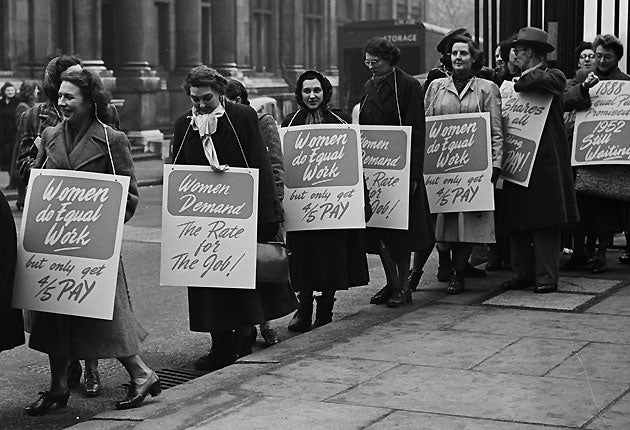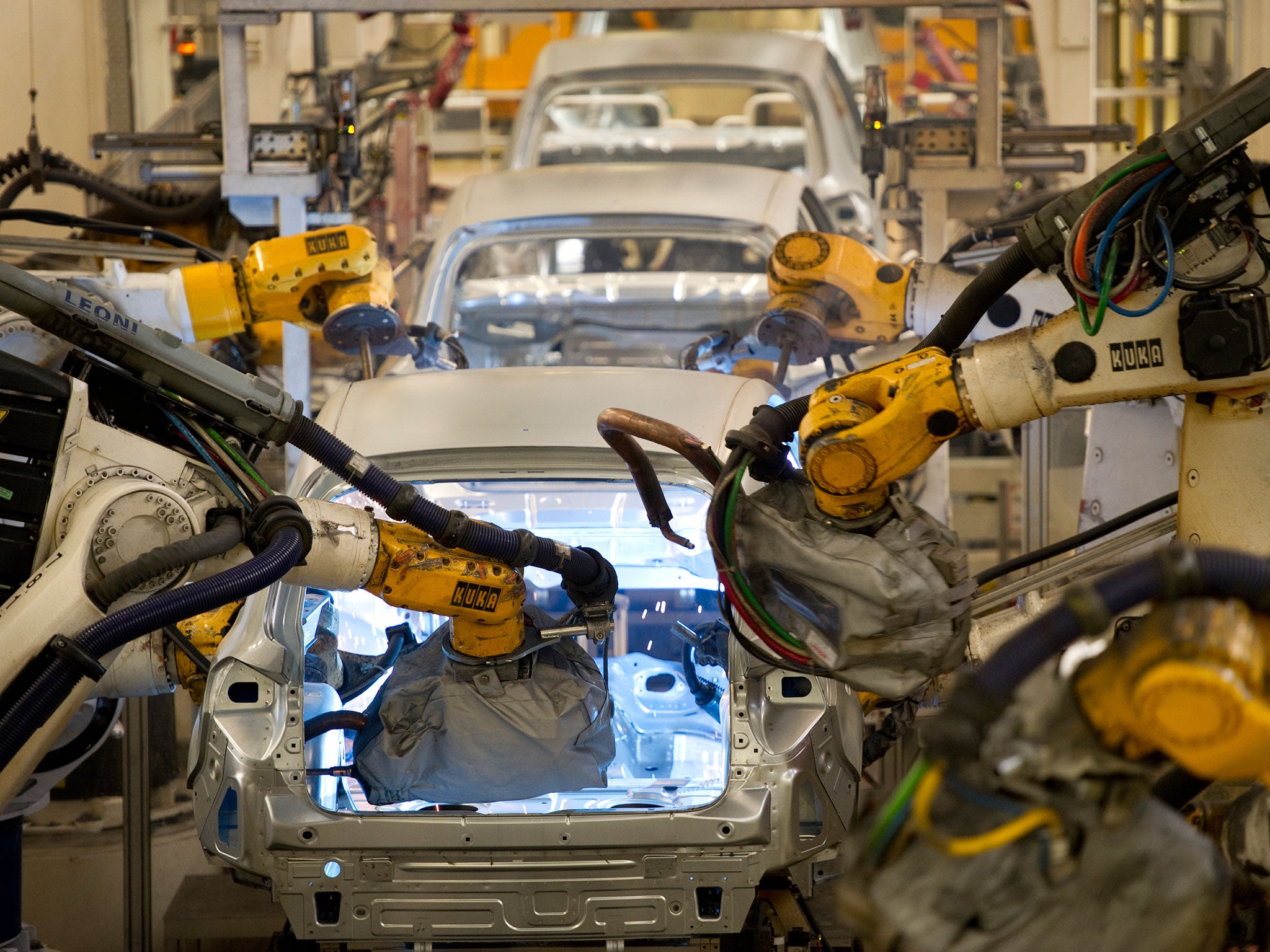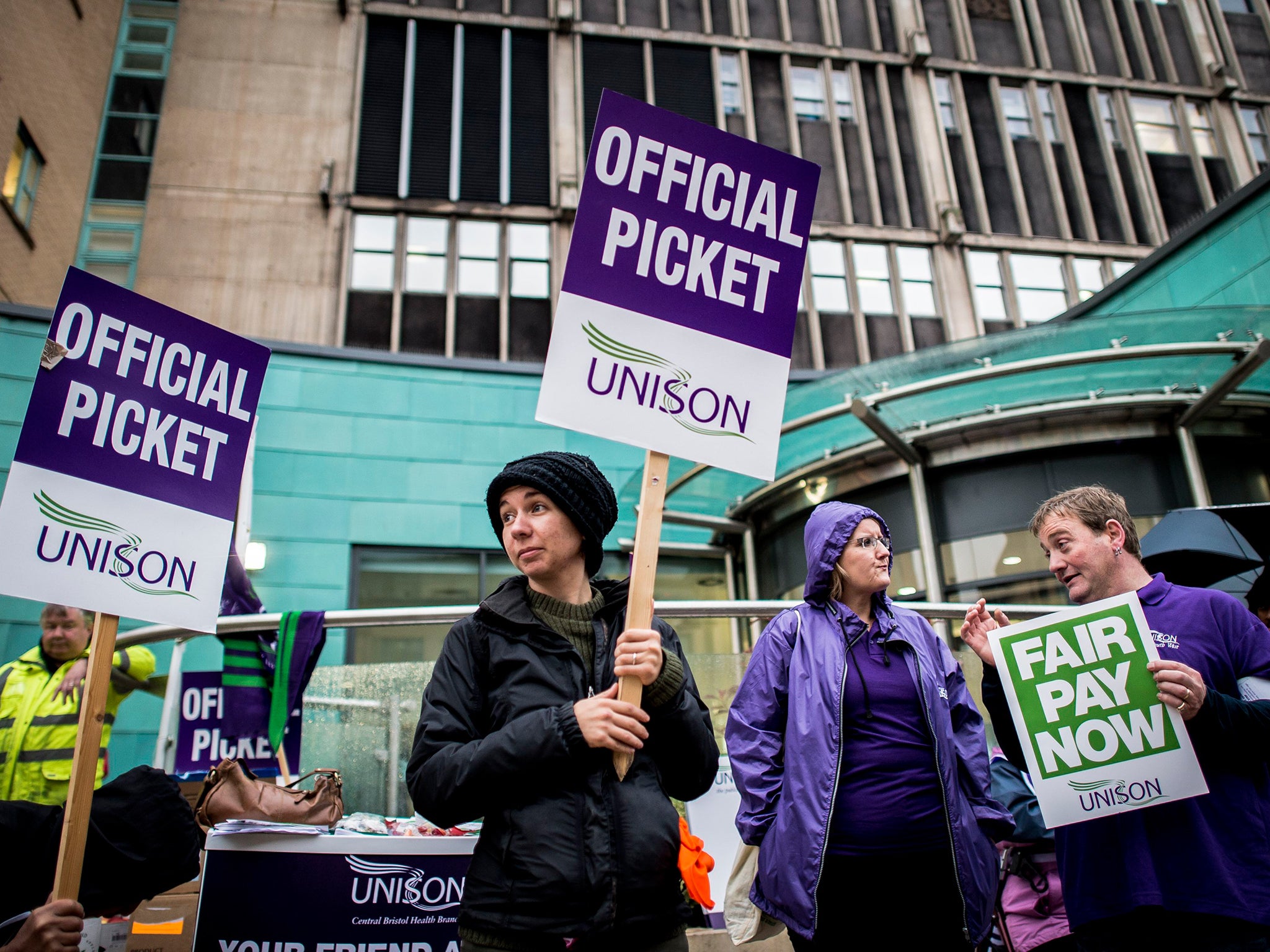Your support helps us to tell the story
From reproductive rights to climate change to Big Tech, The Independent is on the ground when the story is developing. Whether it's investigating the financials of Elon Musk's pro-Trump PAC or producing our latest documentary, 'The A Word', which shines a light on the American women fighting for reproductive rights, we know how important it is to parse out the facts from the messaging.
At such a critical moment in US history, we need reporters on the ground. Your donation allows us to keep sending journalists to speak to both sides of the story.
The Independent is trusted by Americans across the entire political spectrum. And unlike many other quality news outlets, we choose not to lock Americans out of our reporting and analysis with paywalls. We believe quality journalism should be available to everyone, paid for by those who can afford it.
Your support makes all the difference.The Government is moving to crack down on strikes by forcing tougher rules about when workers will be allowed to down tools. But what have strikes ever done for us?
Equal pay for women

The 1970 Equal Pay Act was introduced as a direct result of the 1968 Ford sewing machinists strike. Women workers in Dagenham walked out after their jobs were downgraded to unskilled, bringing production to the factory to a halt. After a protracted dispute the Labour government intervened and passed equal pay into law.
The eight-hour work day

Before trade unions, workers could work schedules as long as 16 hours a day. A series of strikes by the 1880s by gas workers and dockers won an eight-hour working day, which eventually became the new normal. These gains were solidified in parliamentary legislation.
Brought down a government
Pay increases

Heavily unionised workplaces in the private sector tend to achieve higher pay for their members, according to research by the Joseph Rowntree Foundation. The study also found that declining trade union density since the 1980s has damaged unions’ ability to negotiate better pay. As hours lost to strike have fallen, wage rises have become more limited.

Join our commenting forum
Join thought-provoking conversations, follow other Independent readers and see their replies
Comments